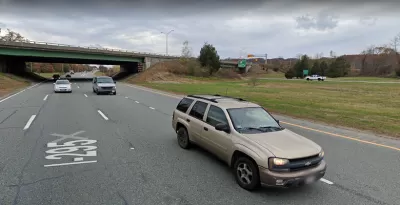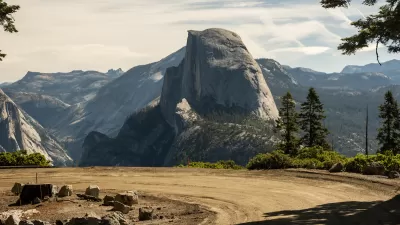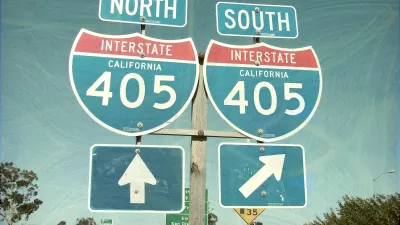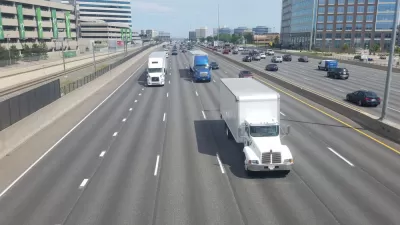In a Strong Towns article passionately argued by Charles Marohn, Rhode Island’s penchant for building new highway capacity while the rest of the state’s roads crumble is compared to Emperor Nero.

“Instead of prioritizing the proper maintenance of Rhode Island’s transportation systems, transportation officials are spending the bulk of their resources on expansion,” writes Charles Marohn in a pointed essay for Strong Towns.
Marohn compares the transportation investments of Rhode Island to Emperor Nero fiddling while Rome burned.
The poor state of the state’s transportation infrastructure is obvious by almost any measure:
More than 80% of Rhode Island’s non-interstate National Highways System (NHS) is in either poor or fair condition. Furthermore, the state leads the nation with the highest percent of rural roads with poor pavement condition. According to TRIP, a national transportation research nonprofit, driving on roads in need of repair cost Rhode Island motorists $620 million a year in additional car repairs and operating fees, or $823 per driver.
Moreover,
Rhode Island ranks last in the nation, 50th out of 50 states, in overall bridge condition. About 22% of the 1,162 bridges in Rhode Island are structurally deficient.
Marohn cites the Cranston Canyon Project, a project planned to widen five miles of roadway and construct a new bridge, as an example of Rhode Island’s commitment to funding new road infrastructure even as the state’s existing roads crumble.
While the official press release for the project “highlights rehabilitation and maintenance efforts that are included in the project, of the $78 million in non-admin project costs, widening projects constitute $41.4 million, or 53% of the total,” writes Marohn. A federal BUILD grant, awarded by the U.S. Department of Transportation, is funding about half of the expansion portion of the project, according to Marohn. (BUILD is the predecessor program, under the Trump administration, to the Biden administration's RAISE grant program. BUILD was the successor to the Obama administration's TIGER grant program.)
The article concludes with an appeal for Rhode Island, and other states, to stop funding road and highway expansion projects until existing infrastructure is stabilized—a passionate appeal for a “fix it first” approach to transportation investments.
FULL STORY: Why Is Rhode Island Building New Roads When Its Current Roads Are Falling Apart?

Alabama: Trump Terminates Settlements for Black Communities Harmed By Raw Sewage
Trump deemed the landmark civil rights agreement “illegal DEI and environmental justice policy.”

Study: Maui’s Plan to Convert Vacation Rentals to Long-Term Housing Could Cause Nearly $1 Billion Economic Loss
The plan would reduce visitor accommodation by 25% resulting in 1,900 jobs lost.

Planetizen Federal Action Tracker
A weekly monitor of how Trump’s orders and actions are impacting planners and planning in America.

Wind Energy on the Rise Despite Federal Policy Reversal
The Trump administration is revoking federal support for renewable energy, but demand for new projects continues unabated.

Passengers Flock to Caltrain After Electrification
The new electric trains are running faster and more reliably, leading to strong ridership growth on the Bay Area rail system.

Texas Churches Rally Behind ‘Yes in God’s Back Yard’ Legislation
Religious leaders want the state to reduce zoning regulations to streamline leasing church-owned land to housing developers.
Urban Design for Planners 1: Software Tools
This six-course series explores essential urban design concepts using open source software and equips planners with the tools they need to participate fully in the urban design process.
Planning for Universal Design
Learn the tools for implementing Universal Design in planning regulations.
Caltrans
Smith Gee Studio
Institute for Housing and Urban Development Studies (IHS)
City of Grandview
Harvard GSD Executive Education
Toledo-Lucas County Plan Commissions
Salt Lake City
NYU Wagner Graduate School of Public Service





























